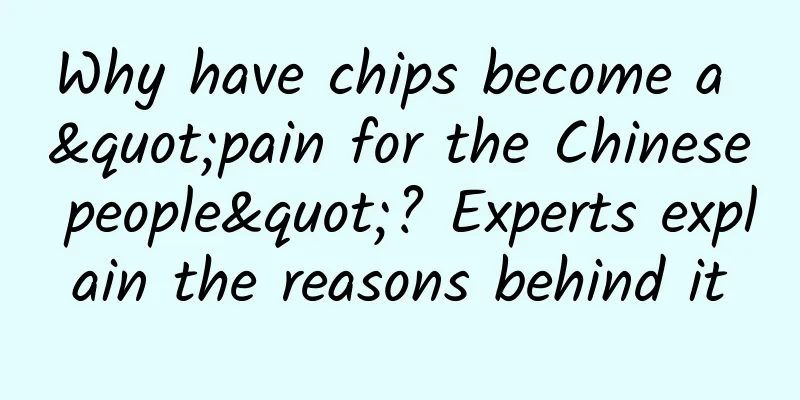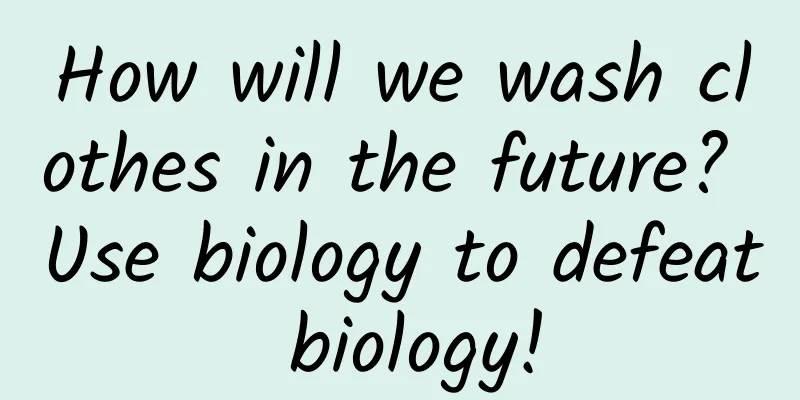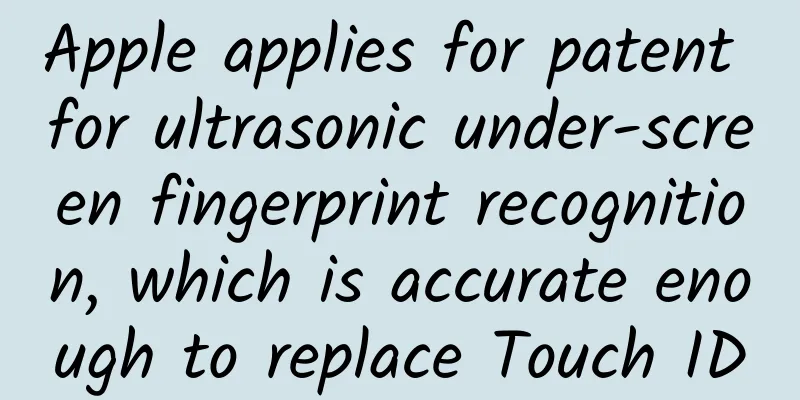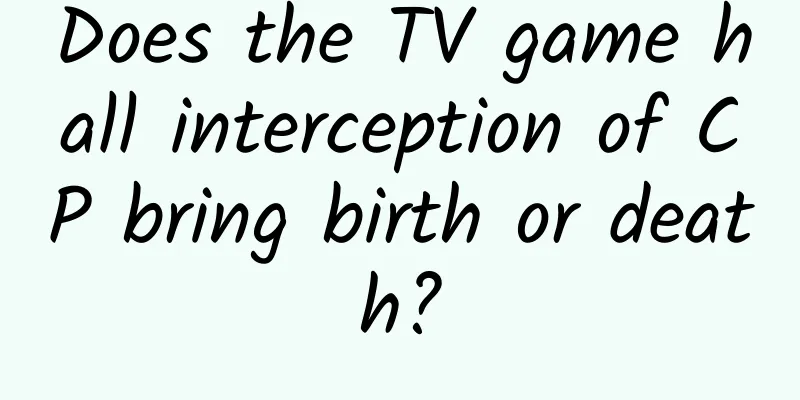There are certain rules to follow when taking medicine. Are you still taking medicine the wrong way?
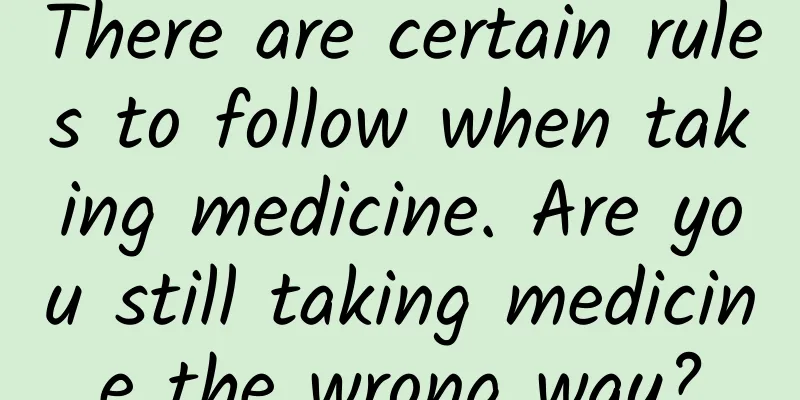
|
Everyone knows that taking the wrong medicine may cause health problems, but what we often overlook is that taking medicine in the wrong way may also cause health risks. Taking medicine seems to be a trivial matter to many friends, but in fact, with the continuous advancement of pharmaceutical preparation technology, even for oral medications, there are currently a variety of dosage forms for everyone to use, such as capsules, tablets, enteric-coated tablets, sustained-release tablets, controlled-release tablets, orodispersible tablets, lozenges, effervescent tablets, etc. The various dosage forms make many friends feel dazzled. As for how to take medicine, there are all kinds of strange "experiences" circulating among the people. For example, you often hear people say that you should not swallow the pill directly, but chew it up to make it work faster. Some people also say that the capsule shell is poisonous, so it is safer to open the capsule and take it. These so-called "experiences" may bring risks to medication, which is not worth the cost. Today we will talk to you about this “little thing” of how to take medicine correctly through 5 typical misunderstandings about taking medicine. 01 Is it better to chew the tablets? "I heard that chewing aspirin can save lives during a heart attack. Will other pills also be more effective if I chew them?" This friend's question is very good. The first half of the sentence is correct, but the second half is a misunderstanding. In the case of acute myocardial infarction, chewing 300 mg of aspirin is indeed to allow the drug to be absorbed quickly and reduce the risk of thrombosis caused by platelet aggregation. However, this is only a "stopgap measure" in the case of acute disease attacks and cannot be used as a universal method for oral tablets. Tuchong Creative In general, except for lozenges, orodisintegrating tablets and other drugs that can dissolve or disintegrate directly in the mouth, other oral tablets, whether ordinary tablets or some special dosage forms, should be taken with warm water during routine use . There is no need to chew them before taking. Chewing them not only tastes bad, but may also affect the normal absorption and metabolism of the drug in the body, and may also increase the irritation of the drug to the digestive tract. It is really unnecessary. Some sustained-release or controlled-release tablets, if chewed and taken, will destroy the sustained-release and controlled-release drug delivery system of the drug, turning slow drug delivery into rapid absorption. A large amount of drug absorption in a short period of time will cause the drug to be too strong, which will bring more medication risks. For example, if the drug nifedipine controlled-release tablets are chewed and taken, the drug will be quickly absorbed and the antihypertensive effect will be too strong, which may cause the risk of hypotension, and the drug's duration of action will be shortened from 24 hours to 2 to 3 hours. Tuchong Creative Another example is some enteric-coated tablets. This type of drug is often more fully absorbed in the intestine or has a certain degree of irritation to the stomach. Absorption in the intestine can improve the safety of medication. If this type of dosage form is chewed and eaten, the enteric coating on the outer layer of the drug is destroyed and it begins to be absorbed when it enters the stomach, which may affect the absorption efficiency or cause gastric mucosal irritation and bring the risk of adverse reactions. It should not be taken in this way. 02 Can pouring out the powder from the capsule and taking it reduce toxicity? Once upon a time, reports of the "toxic capsule shell" incident shocked many people. Since then, some friends have opened the capsules and only taken the medicine inside in order to reduce the "toxicity". This practice is actually completely unnecessary. Toxic capsule shells are unqualified products produced in violation of regulations. Regular capsule shells are made of edible-grade gelatin and will not cause adverse effects on the human body. Capsules are also a conventional and sufficiently safe method of drug preparation. Tuchong Creative Of course, there are certain reasons why drugs are made into capsules. The capsule shell can mask the bad smell of the drug, reduce the irritation of the drug, delay the release and absorption of the drug (sustained-release capsules), and enable the drug to be absorbed in specific parts (such as enteric-coated capsules), among other functions. Therefore, if the capsule shell is opened and only the medicine inside is taken, these functions of the capsule shell will be destroyed, which may at the very least affect the taste of the medicine, or at worst affect the efficacy of the medicine, bringing risks to medication safety. In addition, one thing you should pay attention to when taking capsules is that you should try to take the capsules with warm water below 40 ℃, rather than overheated water. Overheated water will cause the capsules to soften and melt quickly, affecting the protective effect of the capsules, and may also affect the stability and activity of the drugs contained in the capsules. 03 Can effervescent tablets be taken directly in the mouth? Don't do this! There have been many cases of dangerous and even fatal consequences of putting effervescent tablets directly into the mouth. Please don't make this mistake again. Effervescent tablets are a new dosage form that can quickly disintegrate when placed in water, releasing a large amount of carbon dioxide at the same time. The addition of flavor enhancers can improve the taste of the medicine. The vitamin C effervescent tablets that many friends often take are such medicines. In addition, there are some children's medicines, psychiatric medicines, etc., which are also made into effervescent tablets to improve medication compliance. Tuchong Creative This type of medicine must never be put directly into the mouth and swallowed. If put directly into the mouth, the effervescent tablet contains organic acids and bicarbonates, which will quickly disintegrate and react violently under the action of saliva, thereby producing a large amount of carbon dioxide. Both the chemical reaction process and the large amount of gas produced by the reaction may affect the patient's respiratory function. In severe cases, it may even block the respiratory tract, causing suffocation and hypoxia, and even death. Here I suggest that everyone should read the instructions carefully before taking any effervescent tablets or other special dosage forms of medicine, and take the medicine correctly according to the instructions. Never use medicine indiscriminately. 04 As long as it's a pill, can I break it apart and eat it? I remember when we were sick as children, our family would break the adult pills into pieces and give them to the children. Many friends think that as long as it is a pill, you can break it into pieces if you want to take a smaller dose, but in fact, there are many dosage forms that are not suitable for breaking into pieces. Generally speaking, some drugs with coatings on the outer layer, whether it is a coating to cover up the odor, a coating to ensure the stability of the drug, or an enteric coating to release the drug in a specific part, are not suitable for being broken apart and taken. On the one hand, such drugs are often not easy to break apart, and even if they are broken apart, it is difficult to accurately divide them into two halves, and the dosage is difficult to accurately control. On the other hand, after the drugs are broken apart, it may affect the taste of the drugs, increase the irritation of the drugs, affect the stability of the drugs, and affect the intestinal absorption of the drugs in the body. No matter from which aspect, these coated tablets are generally not suitable for being broken apart and taken. Tuchong Creative Controlled-release tablets are generally not suitable for taking after being broken open. Currently, most controlled-release technologies are achieved through skeletons or controlled-release capsules. Breaking open the tablets will destroy the controlled-release structure of the drug, affecting the absorption rate and therapeutic effect of the drug. Unlike controlled-release tablets, some sustained-release tablets are made using microsphere technology, such as metoprolol sustained-release tablets and nifedipine sustained-release tablets II, which are designed to take into account the possibility that patients may require dosage adjustments and can be broken into pieces for administration. As for the question of whether the tablets can be broken, it is actually very simple to distinguish. Most medicines that can be broken and taken have obvious notches for easy breaking. If there are notches on the medicine and the instructions clearly indicate that it can be broken, then it is suitable and can be broken and taken. 05 Can I take medicine with juice or tea? So, what should we use to take medicine? Many people have this or that misunderstanding. Some people don't like to take medicine with water, but prefer to take medicine with juice, milk, tea, etc., thinking that this can better induce the "drug effect". In fact, for some drugs, this way of taking medicine may bring risks, which is really not worth the loss. Except for some medicines that are clearly stated to be taken with milk, other medicines should not be taken with milk as much as possible. Milk contains a lot of protein and other substances, which may react with some mineral supplements and affect the efficacy of the medicine. For example, some iron supplements should be strictly avoided with milk. In addition, taking medicines with milk, such as antibiotics, may also affect the absorption rate of the medicine, thereby affecting the efficacy of the medicine. Tuchong Creative Special attention should be paid to taking medication with fruit juice, especially grapefruit juice, which contains furanocoumarins, a highly effective liver enzyme inhibitor. Taking medication with grapefruit juice may interfere with the absorption and metabolism of multiple drugs. Some commonly used chronic disease treatment drugs, such as statins, felodipine and other antihypertensive drugs, may cause serious medication risks when taken with grapefruit juice. Although other fruit juices may not contain furanocoumarins, other ingredients may also affect the efficacy of the drugs, so it is not recommended to take medication with fruit juice. Tea contains a variety of organic ingredients, such as tannic acid and polyphenols, which may also interact with the relevant ingredients in the drug, affecting the absorption and efficacy of the drug. Therefore, taking medicine with tea is not a good way. Regarding taking medications, if there are no special instructions, it is generally recommended to take them with warm water, which is both convenient and safe. In a word, for drugs in different dosage forms, you should be aware of the various precautions when taking the medicine. Finally, I would like to remind everyone to read the instructions carefully before taking the medicine. For the relevant precautions when taking the medicine, there are generally detailed instructions in the instructions. To use the medicine rationally and safely, you might as well start with taking the medicine correctly! Author | Li Jin, Deputy Director Pharmacist, Deputy Head of the Youth Studies Group of the Medical Committee of the China Science Writers Association Review | Liu Guiyang, Chief Pharmacist, Fourth Medical Center, PLA General Hospital This article is produced by the "Science Rumor Refutation Platform" (ID: Science_Facts). Please indicate the source when reprinting. The pictures in this article are from the copyright gallery and are not authorized for reproduction. |
<<: Most persimmons do not grow on persimmon trees.
>>: The cleanest place on earth is dirty
Recommend
Sony WF-1000XM4 Review: The best TWS headset without any shortcomings
Since its large-scale launch in 2016, TWS earphon...
Why can't I remember what day of the week it is? How did the seven-day week come about?
© Felipe Estay Miller Leviathan Press: The week t...
26 satellites in one rocket! Lijian-1 Yao-2 carrier rocket successfully launched
At 12:10 Beijing time on June 7, 2023, the Lijian...
[Collection] 203 practical tools recommended, a must-have for operators, designers, and advertisers!
The leading media for Internet marketing operatio...
Why your headline routine doesn’t work anymore?
In the age of information explosion, the title of...
Apple's hardcore fans complain: software quality is declining
Marc Almonte, who enjoys a high reputation in the...
Product operation: scenario-based operation plan for community group purchasing!
The generally mentioned scenario is directly base...
Tesla recalls nearly 5,000 Model Xs in China: No need to go to the store, OTA remote repair problem
Tesla Motors (Beijing) Co., Ltd. recently filed a...
Fairy-like, the third phase of "Nantianmen" is connected to the subway? Netizens: Journey to the West is still too conservative
March 24 A netizen posted a video on a bridge in ...
Electrons are everywhere. What are they made of? They are the smallest unit that makes up everything.
Electronics may seem far away from our lives, but...
Finally back! Didi Hitch will start trial operation in 7 cities from November 20
Recently, Didi officially announced that Didi Hit...
The new generation of iPhone is coming. What preparations do mobile developers need to make?
The news that Apple will hold a press conference ...
Acg sentence control
Source code introduction Keep your favorite peopl...
Beichen Asia Market: Analysis of Beijing Automobile Market in May 2023
New car transactions In May , Beijing's new c...
Bloomberg: China's electric vehicle companies' deliveries increased by 85% year-on-year in early 2024
Recently, Bloomberg News published an article say...
